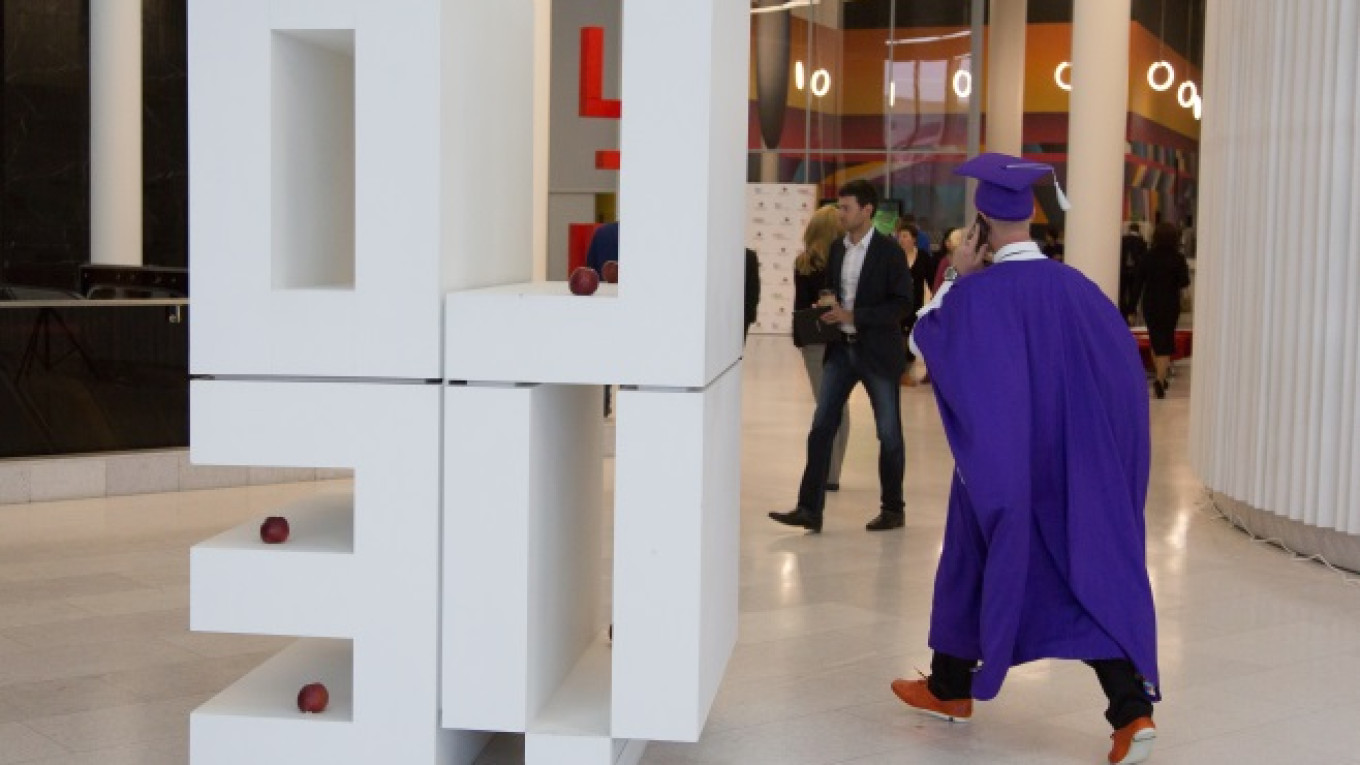Russia's ministries of Education and Science and Foreign Affairs have asked the government to increase the number of foreign students admitted to Russian universities by 30 percent in order to “form pro-Russian national elites” and promote Moscow's interests abroad, a news report said Friday.
Having allies in influential positions abroad would “more effectively advance Russian interests, including those of a long-term nature,” according to a draft government order, Kommersant daily reported Friday.
The report comes as Russia's relations with the West are at their lowest point since the Cold War as a result of the crisis in Ukraine.
The bill would increase the number of tuition-free admissions allocated to foreign students to 20,000 from the current 15,000, Kommersant reported.
The increase would cost the state budget 206 million rubles ($4 million) next year, when the bill is supposed to take effect, but would grow to 4.5 billion rubles ($89 million) by 2019, according to the proposal drafted by the Education and Science Ministry, the Foreign Ministry, and the government agency for promoting Russia abroad, Rossotrudnichestvo.
“It is important for us that graduates of good universities become, in their homelands, well-known doctors, influential business people, even government ministers,” Rossotrudnichestvo head Lyubov Glebova was quoted by Kommersant as saying.
“And such a person will always look favorably on Russia,” she said, according to Kommersant.
Western views on Russia have soured following Moscow's annexation of Crimea from Ukraine last spring, and its support for pro-Russian separatists battling Ukrainian government forces in the country's east.
A deputy provost for international cooperation at the Higher School of Economics, Sergei Yerofeev, said that the new draft regulation would be similar to what was done during the Soviet era as well as the “current practice of leading university nations,” Kommersant reported.
Providing foreign students with Russian government stipends would “undoubtedly help advance the country's national interests,” Yerofeev was quoted as saying.
A Message from The Moscow Times:
Dear readers,
We are facing unprecedented challenges. Russia's Prosecutor General's Office has designated The Moscow Times as an "undesirable" organization, criminalizing our work and putting our staff at risk of prosecution. This follows our earlier unjust labeling as a "foreign agent."
These actions are direct attempts to silence independent journalism in Russia. The authorities claim our work "discredits the decisions of the Russian leadership." We see things differently: we strive to provide accurate, unbiased reporting on Russia.
We, the journalists of The Moscow Times, refuse to be silenced. But to continue our work, we need your help.
Your support, no matter how small, makes a world of difference. If you can, please support us monthly starting from just $2. It's quick to set up, and every contribution makes a significant impact.
By supporting The Moscow Times, you're defending open, independent journalism in the face of repression. Thank you for standing with us.
Remind me later.


